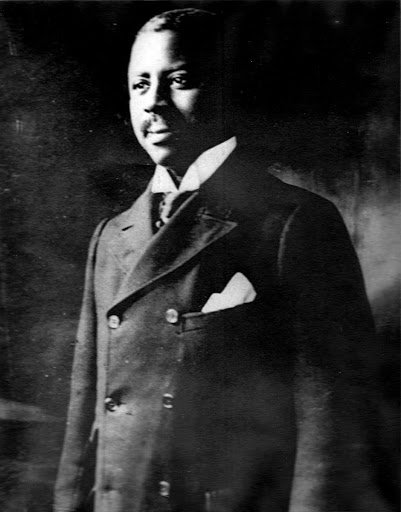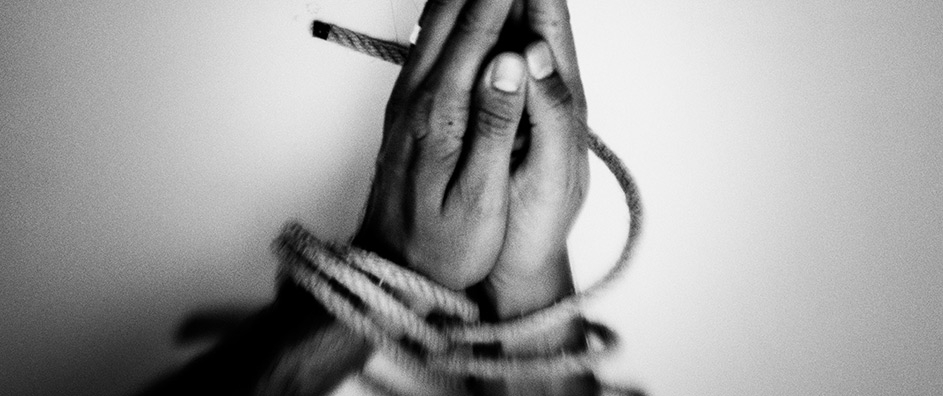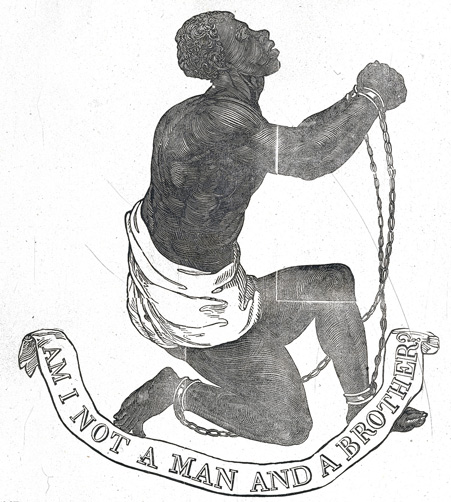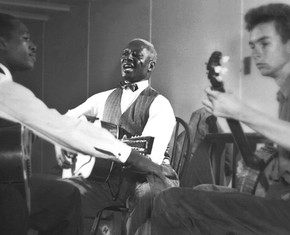The views expressed in our content reflect individual perspectives and do not represent the authoritative views of the Baha'i Faith.
Born in poverty as a slave in 1855, freed on December 18, by the Thirteenth Amendment (nationalizing Lincoln’s 1863 Emancipation Proclamation, exercising his war powers), and then surrounded by wealth in his work as a butler for wealthy Phoebe Hearst (mother of newspaper magnate William Randolph Hearst), Robert Turner has the honor and distinction of being the first African American to embrace the Baha’i Faith.

In Part 6 of this series, we introduced Mr. Turner. Now, let’s look at this photo again. Whether taken shortly before 1898, or shortly after, we’re not quite sure. What we do know is that Robert Turner sent his photograph, along with a letter, to Abdu’l-Baha sometime around 1898.
Turner’s letter, photo enclosed, reached Abdu’l-Baha in the Holy Land. Imagine: Abdu’l-Baha was acutely aware of the racial crisis in America. Before the Civil War, America was “land of the free,” yet home of the slave. Then came the Civil War and the abolitionist movement and Abraham Lincoln, who, in a stunning moment in world history, issued the Emancipation Proclamation on January 1, 1863.
Ten years later, in 1873, Baha’u’llah abolished slavery globally, as a command from God, Baha’is believe. Belief aside, Baha’u’llah was the first founder of a world religion to talk about race, and to put an end to slavery, as a binding religious law. (In Part 1, we called Baha’u’llah’s decree, the “Universal Emancipation Proclamation.”)
Baha’u’llah was also the first prophet to promote unity among races, religions and nations. Baha’u’llah, moreover, was the first Manifestation of God to create a new racial rhetoric, with the power to transform crass bigotry into “race amity.” One of these potent racial metaphors in the Baha’i writings compares people of African descent to the “pupil” of humanity’s collective vision or consciousness.
Abdu’l-Baha — Baha’u’llah’s eldest son, successor, interpreter, exemplar — expanded Baha’u’llah’s racially-positive rhetoric, stressing character over characteristics. In a letter sent through Phoebe Hearst to Robert Turner, Abdu’l-Baha wrote:
O thou who art pure in heart, sanctified in spirit, peerless in character, beauteous in face! Thy photograph hath been received revealing thy physical frame in the utmost grace and the best appearance. Thou art dark in countenance and bright in character. Thou art like unto the pupil of the eye which is dark in colour, yet it is the fount of light and the revealer of the contingent world.
I have not forgotten nor will I forget thee. I beseech God that He may graciously make thee the sign of His bounty amidst mankind, illumine thy face with the light of such blessings as are vouchsafed by the merciful Lord, single thee out for His love in this age which is distinguished among all the past ages and centuries. – Selections From the Writings of Abdu’l-Baha
We know this “Tablet” (Baha’i religious term for an epistle or letter) was for Robert Turner.
The original Arabic is easily available online. Here, the Arabic for “pupil of the eye” (as transliterated into Latin characters) is insān al-‘ayn.
Again, Abdu’l-Baha stresses character over characteristics here. In this instance, the “character” of people of African descent as the “pupil of the eye” is presented in a collective way, as praise for spiritual insight and acuity. The Persian counterpart for the Arabic word for “pupil” (insān) is mardūmak. Both terms also refer to a “man” or “human being.” This ennobling double symbol battles the racist depictions of African Americans of the time as less than human – or, as the American Constitution defined African American men, as three-fifths of a person. More than half a century later, African American civil rights marchers carried powerful signs saying “I Am A Man.”
Middle Eastern scholars have noticed the multiple meanings here, which may have favorably influenced the choice of this ennobling and empowering metaphor, which Abdu’l-Baha ascribes to Baha’u’llah himself:
Baha’u’llah once compared the colored people to the black pupil of the eye surrounded by the white. In this black pupil is seen the reflection of that which is before it, and through it the light of the spirit shineth forth. – Abdu’l-Baha in London
Obviously, this characterization of people of African descent as “the fount of light and the revealer of the contingent world” is deeply metaphorical, yet wholly ideal. The rationale is transparent: Suffering and oppression give a people deep insight into the value and meaning of justice. From such people, therefore, “the light of the spirit shineth forth” by way of penetrating insight into the human predicament.

















Comments
Sign in or create an account
Continue with Googleor